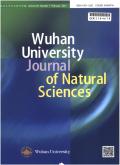基于Spark平台的改进混合协同滤波算法
Q3 Multidisciplinary
引用次数: 0
摘要
针对传统协同过滤算法存在的数据稀疏性、推荐精度低、可扩展性差等问题,提出了一种改进的混合协同过滤算法(H-CF)。H-CF的核心是基于潜在因素模型(LFM)和改进的项目聚类与相似度计算协同过滤算法(ITCSCF)的线性加权混合算法。首先,根据属性维度对项目进行聚类,加快了最近邻集的计算速度。随后,H-CF通过惩罚受欢迎的项目和优化不受欢迎的项目来增强相似性评分公式。这种改进增强了相似性评分的合理性,减少了数据稀疏性的影响。此外,采用加权函数对各种改进算法进行组合。动态调整权重函数的平衡因子,得到最优推荐列表。为了解决实时性和可扩展性问题,该算法利用了Spark大数据分布式集群计算框架。使用公共数据集MovieLens进行了实验,将改进后的算法与增强前的算法和在单机上运行的算法进行了比较。实验结果表明,改进后的算法在数据稀疏性、推荐个性化、准确率、召回率和效率等方面都有较好的表现。本文章由计算机程序翻译,如有差异,请以英文原文为准。
Improved Hybrid Collaborative Fitering Algorithm Based on Spark Platform
An improved Hybrid Collaborative Filtering algorithm (H-CF) is proposed, addressing the issues of data sparsity, low recommendation accuracy, and poor scalability present in traditional collaborative filtering algorithms. The core of H-CF is a linear weighted hybrid algorithm based on the Latent Factor Model (LFM) and the Improved Item Clustering and Similarity Calculation Collaborative Filtering Algorithm (ITCSCF). To begin with, the items are clustered based on their attribute dimension, which accelerates the computation of the nearest neighbor set. Subsequently, H-CF enhances the formula for scoring similarity by penalizing popular items and optimizing unpopular items. This improvement enhances the rationality of scoring similarity and reduces the impact of data sparseness. Furthermore, a weighting function is employed to combine the various improved algorithms. The balance factor of the weighting function is dynamically adjusted to attain the optimal recommendation list. To address the real-time and scalability concerns, the algorithm leverages the Spark big data distributed cluster computing framework. Experiments were conducted using the public dataset MovieLens, where the improved algorithm's performance was compared against the algorithm before enhancement and the algorithm running on a single machine. The experimental results demonstrate that the improved algorithm outperforms in terms of data sparsity, recommendation personalization, accuracy, recall, and efficiency.
求助全文
通过发布文献求助,成功后即可免费获取论文全文。
去求助
来源期刊

Wuhan University Journal of Natural Sciences
Multidisciplinary-Multidisciplinary
CiteScore
0.40
自引率
0.00%
发文量
2485
期刊介绍:
Wuhan University Journal of Natural Sciences aims to promote rapid communication and exchange between the World and Wuhan University, as well as other Chinese universities and academic institutions. It mainly reflects the latest advances being made in many disciplines of scientific research in Chinese universities and academic institutions. The journal also publishes papers presented at conferences in China and abroad. The multi-disciplinary nature of Wuhan University Journal of Natural Sciences is apparent in the wide range of articles from leading Chinese scholars. This journal also aims to introduce Chinese academic achievements to the world community, by demonstrating the significance of Chinese scientific investigations.
 求助内容:
求助内容: 应助结果提醒方式:
应助结果提醒方式:


